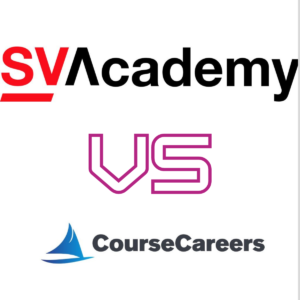Have you ever wondered why companies require you to have a degree even when it wouldn’t benefit the job? You will learn exactly why companies require degrees and how you can get a job without a degree.
Why companies require degrees
- Too many applicants: Most of the time when a company posts a job for an entry level sales position a bunch of people
apply to it due to the low barrier of entry. There isn’t much to go off of when looking through applicants either, so it’s mostly based on soft skills. The companies also don’t have time to interview everyone, so it puts companies in a very easy position to think that candidates with a degree are probably more motivated and have better soft skills. This means there is a good chance anyone without a degree is screened out before they even read the resume. - Companies don’t want to get sued: The government has made it very hard for HR professionals and recruiters to legally weave out candidates that aren’t qualified without running the risk of getting sued. The easiest way around this is by filtering based on formal education which is completely legal. Thanks, government.
- Attract the best people: When people look at a job description that requires a degree, they are more prone to
think it’s a better, more exclusive job. This helps attract college graduates that don’t want to think their degree was a waste and be considered underemployed. This means that even if companies say they require degrees, many actually don’t.
Who makes the hiring decision
There are two main types of people you need approval from to get from the application to the job.
Human Resources
The human resources department or recruiter is normally the first person who sees your application(if they see it at all). This person is responsible for finding the cream of the crop. They are told by the hiring manager what type of person they need and what to look for.
They start by looking at the format of your resume to see how well it’s organized, then proceed to look at your most relevant experience. This experience is normally anything sales related since this is an entry-level sales position.
If they can’t find anything, then they look at your education and see what you majored in. If it’s something relevant or they don’t have enough good candidates then they will probably schedule a phone screen. If they can’t find something that would make them think that you would be a good fit, or if they have too many good candidates then you will probably not hear anything back from them.
Hiring Manager
The hiring manager is normally the person who is looking for someone to add to his team. They are responsible for managing their team’s performance, hiring new employees, and training new employees.
This person would be directly responsible for managing the new hire, so he wants someone who would work well with them and their team
They also wants someone who is dependable and has a good work ethic. They want to know that they can be trained to do the role effectively as soon as possible while not jumping ship.
This is where the previous experience or expertise comes into play. They are very concerned with lowering the risk for his hiring decisions. They need to truly believe that if They hire this person that there is a very good chance he or she will be successful.
If for whatever reason they aren’t successful, then it’s the hiring manager that will be questioned, especially if they hired someone without a degree.
How to get around not having a degree
Millions of people go to college every year to learn very broad subjects. Some of the most popular things to study are psychology, business, communications, etc.
The problem with these types of studies is that people start with the education and then search for a role where it can be used. This normally doesn’t work too well because companies require a much different skill set and expertise than what people learn in college. This makes college an extremely ineffective way to start your career.
This does, however, give people who specialize in a particular role a huge advantage since they can easily stand out in that role when being compared to generalists with a college degree.
Example specialization for sales
There are many different roles which someone can specialize in. It could be a particular type of sales, marketing, customer service, analyst, etc. Here is an example for sales.
There are two main types of sales: B2C and B2B.
●Business to Consumer sales is normally more entry level such as retail sales or insurance sales. You could also sell higher ticket items such as houses, boats, or planes.
●Business to Business sales is where most salespeople are able to make large amounts of money. They could sell anything from software to printers to professional services.
Inside Sales VS Outside Sales
•Inside sales
•Outside sales are where you go out of the office to meet with prospects. You can meet at someone’s house if its B2C or at an executives office if its B2B.
Type of Industry
There are many types of industries you can also specialize in. Here are a few in B2B sales:
- Software
- Hardware
- Medical
- Professional services
How to choose a specialization
What’s Hot
I would start by doing research on the sales position you’re interested in and seeing if it’s in high demand. Choosing a role that companies are struggling to hire enough people for is key as it will make getting a job so much easier.
Entry Level
Is this an entry level role, or do you need a lot of experience to break into it? Make sure there is an entry point into the industry before you choose to specialize in it.
Natural Interests & Abilities
If you absolutely hate software, then don’t work in it! Choose an industry you are attracted to and would enjoy becoming an expert in.
If you would like to learn more about how you can get a job without a degree by specializing in a role, then checkout the complete guide.




